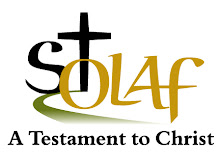St. Pope John XXIII wrote another encyclical on social justice in 1963, 2 years after he wrote his first one “Christianity and Social Progress.” The second one is titled “Peace on Earth” or “Pacem in Terri.”
In “Peace on Earth” St. Pope John XXIII wants us to know that “peace can be established only if the social order set down by God is fully observed.” (1) He laid out a list of things to be followed by everyone, not only the Church, but governments, communities, and individuals. St. Pope John XXIII said that peace should be “founded on truth, built according to justice, vivified (animated) and integrated by charity, and put into practice in freedom.” (1)
He wrote “Peace on Earth” during the 1st year of Vatican II. And it was published right after the Cuban Missile Crisis and the construction of the Berlin Wall. This encyclical spoke to a world that knew all too clearly the dangers of a nuclear war. Since the world knew the dangers, “the optimistic tone and the development of a philosophy of rights” had a significant impact on not only Catholics but non-Catholics as well. (1)
Section 9 in the encyclical says, “Every human is a person, endowed with intelligence and free will, who has universal and inviolable rights and duties.” This tells us we are equal to one another and in being equal comes the rights due to all, but also we have the duty to make sure the rights are upheld and everyone is included. This means not just our next door neighbor but our brothers and sisters around the world.
Saint Pope John XXIII reiterates in this encyclical what the other “Social Justice” encyclicals have said. Everyone has the right to life, a good standard of living, freedom of speech, the right to work for a just and sufficient wage and the right to choose what one wants to do in life whether it be pursuing a vocation, raising a family, etc. Along with these expressed rights Saint Pope John XXIII also wrote we have the right to religion and conscience. In other words, no one can tell us we can’t believe in God and they cannot force us to do something we believe is wrong. Along with these rights come the duties as well. We need to respect the rights of others, work collaboratively with each other, to act responsibly for others and to preserve life.
To complete the quote used at the beginning from section 167 of the document which sums it up like this: “Peace will be but an empty sounding word unless it is founded on the order which the present document has outlined…an order founded on truth, built according to justice, vivified (animated) and integrated by charity, and put into practice in freedom.”
(1) Catholic Social Teaching Our Best Kept Secret, 1995
GIFT Snow Day!
14 years ago




No comments:
Post a Comment